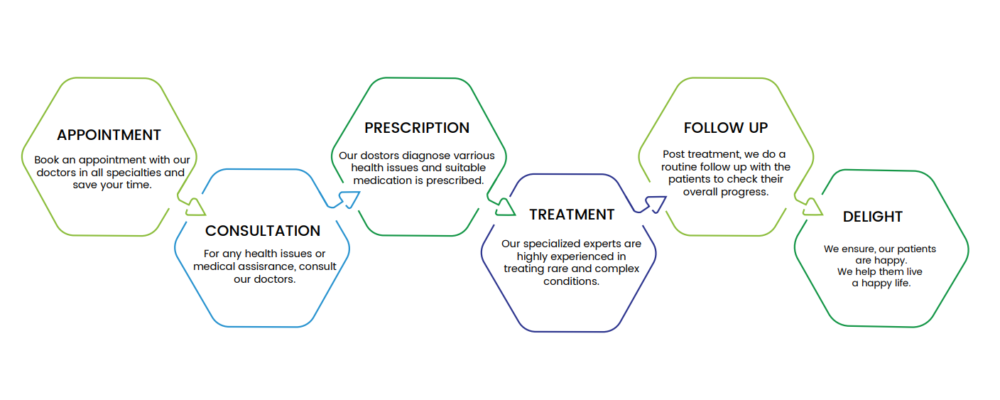Cardiology
Cardiology is a medical specialty focused on diagnosing, treating, and preventing diseases of the heart and blood vessels. This field encompasses a wide range of conditions, including coronary artery disease, heart failure, arrhythmias, and congenital heart defects. Cardiologists, the doctors specializing in this field, employ various diagnostic techniques and treatment methods to manage cardiovascular health. The goal of cardiology is to improve and maintain heart health, enhance the quality of life, and reduce the risk of heart-related complications.
Key Areas of Cardiology
Cardiology addresses multiple aspects of heart and vascular health:
- Preventive Cardiology: Focuses on reducing the risk factors for heart disease, such as high blood pressure, high cholesterol, obesity, and smoking. This includes lifestyle counseling, medications, and regular screenings.
- Interventional Cardiology: Involves minimally invasive procedures like angioplasty and stenting to treat coronary artery disease. Interventional cardiologists use catheters and imaging techniques to restore blood flow in blocked arteries.
- Electrophysiology: Deals with the electrical activities of the heart. Electrophysiologists diagnose and treat arrhythmias (irregular heartbeats) using techniques like electrophysiological studies, ablation, and pacemaker or defibrillator implantation.
- Heart Failure Management: Focuses on treating patients with heart failure through medications, lifestyle changes, and advanced therapies like ventricular assist devices (VADs) or heart transplantation.
- Pediatric Cardiology: Specializes in diagnosing and treating heart conditions in infants, children, and adolescents. This includes managing congenital heart defects and acquired heart diseases in young patients.
Common Cardiovascular Conditions
Cardiology encompasses a broad range of heart-related conditions:
- Coronary Artery Disease (CAD): The most common type of heart disease, caused by the buildup of plaque in the coronary arteries, leading to reduced blood flow to the heart muscle. Symptoms include chest pain (angina) and heart attacks. Treatment includes lifestyle changes, medications, and procedures like angioplasty.
- Heart Failure: A chronic condition where the heart cannot pump blood effectively, leading to symptoms such as shortness of breath, fatigue, and fluid retention. Management includes medications, lifestyle changes, and sometimes devices or surgery.
- Arrhythmias: Abnormal heart rhythms, which can be too fast (tachycardia), too slow (bradycardia), or irregular (such as atrial fibrillation). Treatment may involve medications, lifestyle changes, and procedures like ablation or implantation of pacemakers.
- Valvular Heart Disease: Involves damage to one or more of the heart valves, affecting blood flow. Conditions include stenosis (narrowing) and regurgitation (leakage). Treatment ranges from medications to surgical valve repair or replacement.
- Hypertension: Chronic high blood pressure, a significant risk factor for heart disease and stroke. Management includes lifestyle modifications and antihypertensive medications.
Diagnostic Techniques in Cardiology
Accurate diagnosis in cardiology involves various tests and imaging studies:
- Electrocardiogram (ECG/EKG): Records the electrical activity of the heart to detect arrhythmias, heart attacks, and other conditions.
- Echocardiogram: An ultrasound of the heart that provides detailed images of heart structures and function, used to diagnose conditions like heart failure and valve diseases.
- Stress Testing: Evaluates the heart’s performance under physical stress, helping to diagnose coronary artery disease and assess exercise tolerance.
- Cardiac Catheterization: Involves inserting a catheter into the heart to measure pressures, take blood samples, and perform angiography to visualize coronary arteries.
- Holter Monitor: A portable device worn by patients to continuously record heart rhythms over 24-48 hours, useful for detecting intermittent arrhythmias.
Treatment and Management in Cardiology
Treatment strategies in cardiology aim to manage symptoms, treat underlying conditions, and prevent complications:
- Medications: Cardiologists prescribe a range of medications, including beta-blockers, ACE inhibitors, statins, anticoagulants, and diuretics, to manage various heart conditions.
- Lifestyle Modifications: Patients are advised to adopt heart-healthy lifestyles, including a balanced diet, regular exercise, smoking cessation, and stress management.
- Interventional Procedures: Techniques like angioplasty, stent placement, and atherectomy are used to treat coronary artery disease. These procedures improve blood flow and reduce the risk of heart attacks.
- Surgical Interventions: In cases where medical and interventional treatments are insufficient, surgeries such as coronary artery bypass grafting (CABG), heart valve repair/replacement, and heart transplantation are performed.
- Cardiac Rehabilitation: A structured program of exercise, education, and counseling designed to improve cardiovascular health and recovery after a heart attack, surgery, or other heart conditions.
Why Choose Medhelp International for Cardiology Services?
Medhelp International is a leading name in the field of cardiology in Islamabad, and for good reasons:
Experienced Cardiologists: Our team consists of highly skilled and experienced cardiologists dedicated to preventing, diagnosing, and treating heart-related issues. They use the latest cardiology advancements to ensure our patients’ best care.
State-of-the-Art Facilities: Medhelp International has invested in modern technology and cutting-edge equipment to provide accurate diagnostics and efficient treatment options.
Comprehensive Services: We offer a wide range of cardiology services, including:
- Cardiac Consultations: Our experts provide thorough assessments and personalized recommendations to maintain or improve your heart health.
- Cardiac Imaging: We use advanced imaging techniques to visualize your heart, such as echocardiography and stress tests.
- Interventional Cardiology: Our interventional cardiologists perform procedures like angioplasty and stent placement to address blockages and other cardiac issues.
- Electrophysiology: We specialize in diagnosing and treating heart rhythm disorders.
- Preventive Cardiology: We focus on risk assessment and prevention strategies to keep your heart healthy.
Patient-Centric Approach: At Medhelp International, we put our patients first. Your concerns and well-being are our top priorities. Our team ensures you receive personalized, compassionate care at every visit.
Cardiology for Everyone
We believe that heart health is a concern for everyone, regardless of gender or age. Heart disease doesn’t discriminate, and neither do we. Our services cater to all individuals, men and women alike because a healthy heart is crucial for a healthy life. Our experienced cardiologists, state-of-the-art facilities, and patient-centric approach make us the top choice for cardiology services in Islamabad. Contact us today for a comprehensive heart assessment and personalized care.





